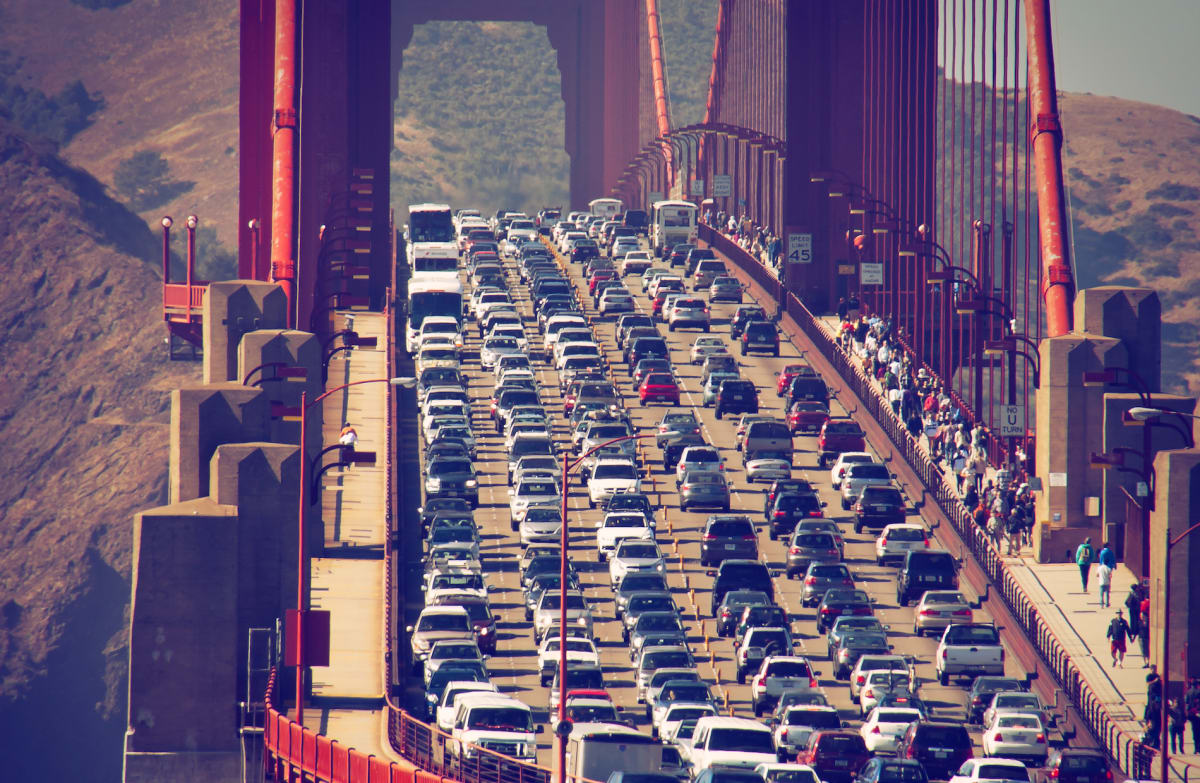
It has become the symbol of the anti-woke offensive against progressive values.
San Francisco has been under attack for several months now by those who have made it their mission to defeat what they call the woke mind virus. That's an expression encompassing progressive values and ideas. In the U.S. it is represented by the progressive left wing of the Democratic Party.
The anti-woke movement, which usually brings together conservatives and far-right activists, accuses the affected progressives of trying to impose on society policies regarding racial diversity, gender equality and identity, and environmental, social and corporate governance, all with no thought about diversity of opinions and freedom of speech.
They argue that woke people are intolerant and that wokeism leads to cancel culture -- in other words, to intolerance and dictatorship of thought.
In addition, they say, wokeism advocates for lax immigration laws, civil disorder and defunding the police.
Criticizing SF, a 'Bastion of Wokeism'
San Francisco is a bastion of wokeism, says the anti-woke movement, which includes Tesla (TSLA) CEO and Twitter owner Elon Musk.
The killing of Bob Lee, a prominent technology figure, on a San Francisco street last week has accelerated the attacks on the city. Lee, the creator of Cash App and former chief technology officer of Jack Dorsey's payments company Block, on April 4 was stabbed to death.
"We are committed to bringing justice for this senseless act of violence," District Attorney Brooke Jenkins reacted in an email statement.
For the anti-woke Lee's death confirms what they have been lamenting for months: that San Francisco is dying, the victim of progressive ideology.
Musk just affirmed this point of view. He went further and depicted the image of an apocalyptic city gradually emptying of its inhabitants.
"Downtown SF looks like a zombie apocalypse," the billionaire said on April 10. "People who’ve not been there have no idea."
He was reacting to a report from The San Francisco Standard saying that one of the largest supermarkets in Downtown San Francisco -- the Whole Foods Market at Eighth and Market streets -- was about to close just a little more than a year after it opened, due to "high theft and hostile people."
The article is causing a stir on social networks, generating many comments, most of them hypercritical of the city. One user wondered, for example, whether the official data about crime are accurate.
"But but but all the data point to SF being a super safe, low crime paradise. Weird how everyone on the ground — from individuals to massive companies — acts as if the data are incorrect," the user wrote.
Musk does not dispute the official figures. He advances a theory on why these official figures are low.
"People give up reporting crime when no action is taken or the criminal is immediately released," the techno king, as he's known at Tesla, argued. "They actually call it 'catch and release.'"
SF Tech Community Going Into Politics
The tech community wants a drastic change and quickly. And its members now want to get involved in politics. The tech investor Jason Calacanis, who is a friend of Musk, declared on April 7 that he was running for mayor of San Francisco.
Whether Calcanis is serious about his candidacy or not, his remark led Musk to pledge to double the investments of his companies in the city if Calacanis gets elected.
"If you become mayor, my companies will double their investment in San Francisco. Such an incredible city has been used & abused by management for too long!" the billionaire said.
"Looks like I've got my first endorsement!" said Calacanis, who has called on voters to oust Mayor London Breed.
San Francisco is facing an intractable homeless crisis, with its corollary, a drug epidemic, linked mainly to fentanyl.
The city has nearly 8,000 homeless people, about 1% of its population of around 835,000. This situation causes residents and businesses to complain about tent camps set up in the streets, dirtiness and vandalism.
Public exasperation led to the recall of three progressive members of the San Francisco Board of Education last year. The district attorney was also ousted.
Another issue: The lockdown put in place to prevent the spread of covid has emptied the city of its tech workers. The refusal of many employees to return to the office and the adoption of a hybrid model of work by many companies have left many commercial buildings empty.
Office vacancy in San Francisco is among the highest in the nation -- with space in the city the quickest to empty out, according to Savills, a commercial real estate firm.
The city’s vacancy rate grew to a record 32.7% in the first quarter of 2023 from 32.1% in the fourth quarter of 2022, Savills reports
To comprehend the extent of the problem, consider the rest of Silicon Valley, less than an hour south of San Francisco. The office vacancy rate in Silicon Valley stood at 23.1% in Q1 2023, compared with 22.7% in Q4 2022.
"We expect office availability (in San Francisco) to continue to increase in 2023 as the slowdown in the technology sector persists,” Savills said in the report.







